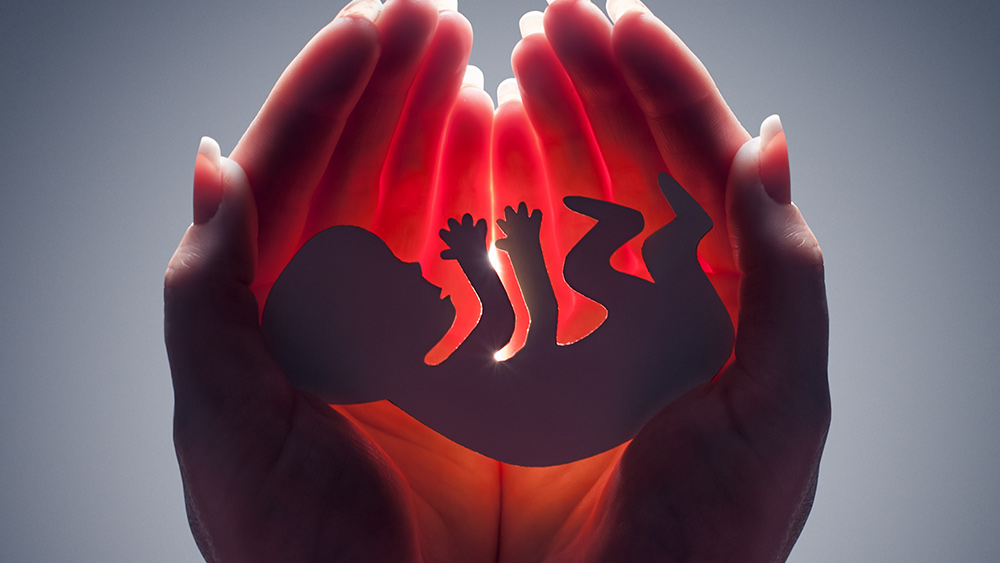Canada euthanizes 36 citizens every single day, data show
11/20/2023 / By Ethan Huff

One of the euthanasia capitals of the world, Canada, is back in the news for the high number of citizens that die throughout the country via assisted suicide every single day.
According to the latest figures, 36 Canadians die every single day with the help of a government-approved doctor. In fact, euthanasia is now so popular in Canada that it makes up 4.1 percent of deaths nationwide.
This is a significant increase since 2021 when just 3.3 percent of Canadian deaths every year were the result of euthanasia.
The fourth annual report on Medical Assistance in Dying (MAiD) for 2022, which was just released last month, states that since 2016, euthanasia has claimed the lives of almost 45,000 Canadians.
MAiD was legalized in 2016, by the way. That year, 1,018 Canadians chose to die under the program. Just six years later in 2022, that annual figure of Canadian euthanasia deaths skyrocketed to 13,241 people, which works out to about 36 euthanasia deaths daily throughout Canada.
“This works out to an average yearly growth rate of 31.1% since 2019,” a report about the matter explains. “Data shows that 81% of written requests for MAID were granted.”
“However, of the remaining 19%, only 3.5% of applicants were deemed ineligible for MAID, a number which has been declining since 2019.”
(Related: Did you know that Canada just expanded its assisted suicide laws to now include the euthanasia of infants?)
If more beds were available, even more Canadians would be approved for euthanasia
One important thing to note in all this is that most patients in Canada who are denied MAiD are only refused because there simply is not enough capacity at approved facilities to handle their assisted deaths.
“This means that individuals within this category were solely refused because of the lack of beds available, and they would have been euthanized if space permitted,” reports explain.
The Canadian provinces seeing the most assisted suicide are Quebec and British Columbia. Out of all deaths in these two provinces, 6.6 percent and 5.5 percent, respectively, are caused by assisted suicide.
Conversely, the two Canadian provinces with the lowest levels of euthanasia are Newfoundland & Labrador and Manitoba, accounting for 1.5 percent and 2.1 percent of all deaths, respectively.
According to Health Canada, an individual must experience “intolerable physical or psychological suffering that is caused by their medical condition or their state of decline and that cannot be relieved under conditions that the individual finds acceptable” in order to qualify for MAiD.
A survey of MAiD recipients found that the primary source of one’s “intolerable suffering” is the “loss of ability to engage in meaningful life activity,” with a full 86 percent of respondents saying they experience this. Eighty-two percent indicated that they opted for assisted suicide because they lost the ability to perform ADL, which stands for activities of daily living.
“This confirms that euthanasia is mainly [an] existential issue, not a pain management or medical one,” contends life advocate Amanda Achtman, who opposes assisted suicide.
“The Government of Canada continues to use creepy euphemisms, including:
– MAID ‘provisions’
– MAID ‘recipients’
– steady ‘year-over-year growth’ [in #s of deaths]
– ‘performed the procedure’
– ‘eased safeguards’
– ‘MAID care coordination systems,'” Achtman tweeted in a series of posts about how not everything is as it seems in Canada concerning its euthanasia program.
“As in previous years, the top cited kind of suffering that leads a person to ask for euthanasia is ‘the loss of ability to engage in meaningful activities.'”
Starting on March 17, 2024, people with mental problems as their sole underlying medical condition will no longer qualify for MAiD.
The latest news about the growing push for more euthanasia can be found at Depopulation.news.
Sources for this article include:
Submit a correction >>
Tagged Under:
assisted suicide, bad doctors, big government, Canada, dangerous doctors, depopulation, euthanasia, evil, MAID, medical assistance in dying, medical violence, outrage depot, Twisted
This article may contain statements that reflect the opinion of the author
RECENT NEWS & ARTICLES
COPYRIGHT © 2017 POPULATION CONTROL NEWS




















